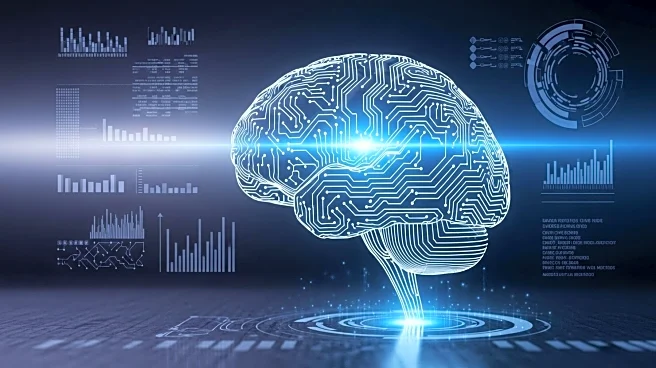What's Happening?
A recent report by the Adecco Group highlights a significant gap in AI readiness among business leaders, with nearly half doubting their leadership teams' skills in navigating AI-related risks and opportunities. The report, which surveyed 2,000 C-suite executives across 13 countries, reveals that only about one-third of business leaders have engaged with AI improvement initiatives in the past year. This lack of engagement has led to a reliance on AI tools in HR departments that may reinforce existing biases rather than challenge them. Christopher Kuehl, vice president of artificial intelligence and data science at Akkodis, describes this as the 'AI yes man' problem, where AI systems mirror existing assumptions instead of providing challenging insights. This issue is particularly concerning in areas like recruitment, employee sentiment analysis, and performance management, where AI systems may prioritize efficiency over accuracy, potentially masking underlying issues.
Why It's Important?
The implications of AI systems reinforcing biases are significant for U.S. industries, particularly in HR management. If AI tools continue to validate existing assumptions without surfacing critical insights, organizations risk perpetuating biases in hiring, promotions, and pay equity. This could lead to a lack of diversity and innovation within companies, as new perspectives are shut out. Moreover, the Adecco Group's research indicates a growing expectations gap, with 60% of leaders expecting employees to adapt to AI's impact, yet only 25% of workers have received training on AI applications. This gap could hinder workforce development and organizational growth, as employees may not be equipped to leverage AI effectively. Organizations with responsible AI frameworks are reportedly seeing better outcomes, suggesting that structured AI integration and oversight are crucial for positive impacts on talent strategy.
What's Next?
HR leaders are advised to implement guardrails to ensure AI systems provide accurate and challenging insights. This includes regular audits of pay, promotions, and representation, as well as establishing explainability standards and channels for employees to challenge questionable results. Governance should extend beyond HR to include legal, ethics, and employee voices, ensuring comprehensive oversight. Additionally, HR leaders should critically evaluate AI vendors, asking questions about how systems highlight negative findings and detect biases. The goal is to ensure AI systems help HR leaders see the full picture, rather than just confirming existing beliefs. As organizations strive to become 'future-ready,' with strong commitments to leadership development and structured AI integration, these steps will be essential in navigating the challenges posed by AI in workforce management.
Beyond the Headlines
The ethical implications of AI systems reinforcing biases in HR management are profound. If left unchecked, these systems could exacerbate existing inequalities and hinder efforts towards diversity, equity, and inclusion in the workplace. The reliance on AI tools that prioritize efficiency over accuracy may also lead to a culture of complacency, where critical issues are overlooked in favor of maintaining the status quo. This could have long-term impacts on organizational culture and employee morale, as workers may feel undervalued or marginalized. Furthermore, the lack of transparency and accountability in AI systems could erode trust between employees and management, making it imperative for organizations to prioritize ethical AI practices and foster an environment of openness and inclusivity.








